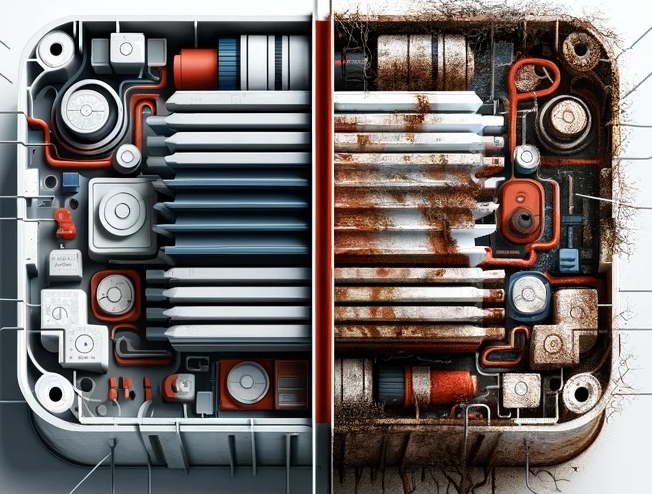Lifespan and maintenance of DC drives?

Hello DC Control friends,
The lifespan and maintenance requirements for DC drives can vary widely depending on the manufacturer, model, operating conditions, and the specific application. However, some general guidelines can be considered:
Lifespan
Average Lifespan: DC drives can generally last anywhere from 5 to 15 years, although high-quality drives maintained under optimal conditions can exceed this range.
Operating Conditions: The life expectancy can be significantly influenced by factors such as temperature, humidity, and dust. Drives used in harsh conditions will typically have a shorter lifespan.
Usage: Constant high-load operations may wear out a DC drive faster than intermittent or low-load operations.
Quality of Components: Higher-quality components will generally have a longer lifespan.
Maintenance Requirements
Regular Inspection: Components like capacitors, fans, and electrical connections should be inspected regularly for wear and tear.
Cleaning: Keeping the drive clean from dust and debris can help in maintaining optimal operating conditions.
Cooling System: The cooling fans and heat sinks should be kept in good condition to prevent overheating.
Firmware Updates: Some drives may require periodic firmware updates.
Spare Parts: It is advisable to keep essential spare parts for emergency replacements.
Professional Services: For complex systems, periodic inspection by a qualified technician is recommended.
Records: Keeping a log of all maintenance activities can help in diagnosing future issues.
Additional Points to Consider
Redundancy: In mission-critical applications, having a backup drive can provide an additional layer of security.
End-of-Life Services: Many manufacturers provide recycling or disposal services for old drives.
Warranty: Always consider the warranty terms when purchasing a new drive, as some may offer extended coverage for certain components or conditions.
Consult Manuals and Guidelines: Manufacturers usually provide detailed maintenance guidelines in user manuals.
In summary, while DC drives are generally robust and reliable, their lifespan can be significantly extended with proper maintenance. Always consult the manufacturer’s guidelines and consider hiring professionals for complex maintenance tasks to ensure the longest and most efficient operation of your DC drive.
While the use of DC drives in industry (at least at high power levels) has diminished, they are still widely found. Below, we have attempted to answer the most frequently asked questions about DC drives from our visitors.
- What are the operating principles of DC drives?
- What are the different types of DC drives?
- What are the key differences between DC drives and AC drives?
- What are the typical applications for DC drives?
- How energy-efficient are DC drives?
- What are the control methods used in DC drives?
- What type of DC drive is most suitable for a specific DC motor?
- What are the most common problems and solutions associated with DC drives?
- What are the power ranges used in DC drives?
- What additional components are used alongside DC drives?
- What are the advantages and disadvantages of DC drives?
- How do I choose a DC drive?
- How scalable are DC drives?
- Is integration between a DC drive and a PLC possible?
- What are the lifespan and maintenance requirements for DC drives?
- What safety features are included in DC drives?
- How is the dynamic response in DC drives?
- What feedback options are available in DC drives?
- What types of protection mechanisms are used in DC drives?
- What types of sensors can be used with DC drives?
These questions generally also encompass the types of queries that many people may have about DC drives. Each user or student will have their own unique question or interpretation depending on the specific situation or application. The answers provided are not binding and are not definitive. "You are welcome to share the article above as long as you cite it as the source." 05.2019
Your shopping cart is empty!
